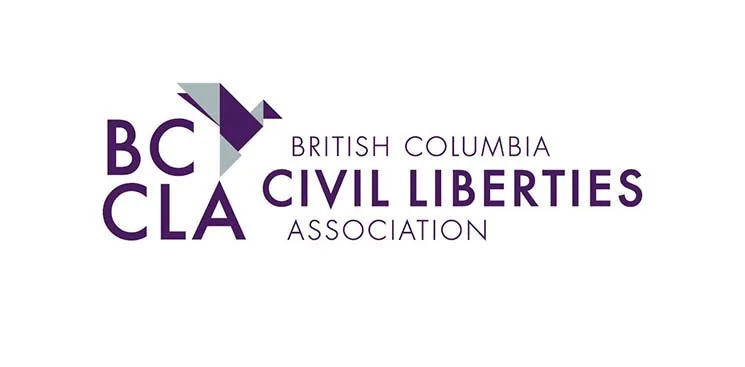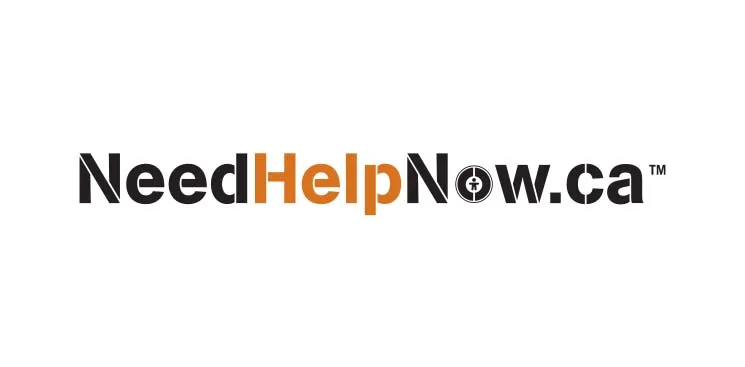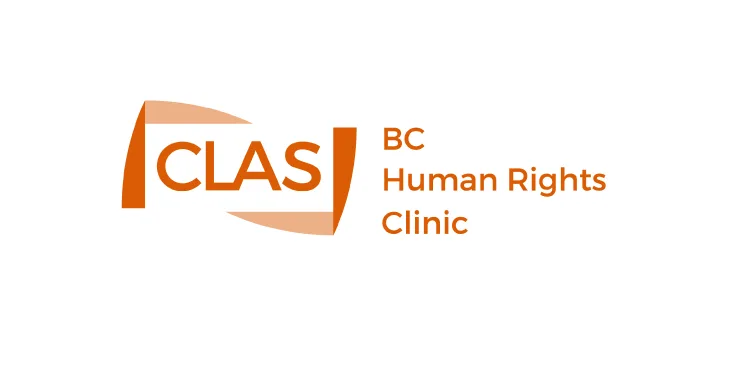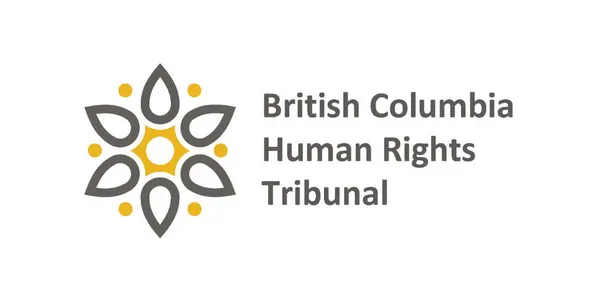
Your right to freedom of expression set out in the Charter of Rights and Freedoms applies in your dealings with everyone.
Freedom of expression is a front burner issue around the world. In Canada, your right to free expression is explicitly protected in relation to your dealings with government entities. Between individuals, things are a little murkier. Learn about freedom of expression rights and how they can play out on the internet.
What you should know
“A guy running for mayor in my city is a polarizing figure. The other day, he put out something on social media that I view as being homophobic. I wanted to reply to offer my take. Turns out he set up his account so only people he follows can reply to his posts. He’s a public figure — shouldn’t anyone be able to share an opinion? This feels like a violation of my right to free speech.”
– Bernie, Prince George, BC

What “freedom of expression” means
Freedom of expression is your right to speak and be heard, and to listen to the expression of others. It protects your right to dissent, and is core to living in a democratic society.
The right to freedom of expression is set out in our constitution. Under the Canadian Charter of Rights and Freedoms, you’re free to peacefully express opinions and ideas contrary to those held by government entities (within reasonable limits, which we explain in a moment).
Expression is any activity or communication that attempts to convey meaning. It could be an act of civil disobedience, like a march or protest. Or something on a smaller scale, like a social media post.
When freedom of expression rights come into play
Your freedom of expression rights set out in the Charter apply in your dealings with government entities. This is a key point: When it comes to your dealings with others, your Charter rights don’t apply. In fact, there is no law that explicitly protects your freedom of expression in relation to other individuals. But several laws can come into play — such as defamation and privacy laws — to limit or counter the right to free expression.
Here’s an example to highlight this key difference. Let’s say you’re protesting at your community’s city hall against a new law. A government official comes out and tells you to stop, or they’re going to have the police arrest you. Because a government entity is involved, this could be a violation of your right to free expression.
In contrast, say someone posts a nasty comment about you on Facebook. You ask them to take it down, and they claim they’re exercising their right to free speech. Since the Charter’s freedom of expression protections don’t apply as between individuals, this argument doesn’t hold water. But there are other laws that may come into play, including defamation and hate laws. We look at these below.
As noted above, your Charter right to freedom of expression is protected when your dealings are with government entities. So what might a violation of these rights look like, focusing on online spaces?
Some examples
Here are some examples:
Your municipality adopts a policy that restricts the public from interacting with local politicians on social media during an election.
The government passes a law that gives it the power to shut down websites that express views that it doesn’t agree with.
The police threaten to arrest a group of people who, in a Facebook group, are discussing how they'll hold a peaceful protest.
A government body asks a social media company to take down content that it labels as misinformation.
These are just possibilities. Whether or not they would amount to a restriction on freedom of expression in practice depends on looking more deeply at the context.
The right to freedom of expression has limits
That is in part because the right to freedom of expression set out in the Charter is not absolute. Rather, it’s subject to reasonable limits that can be justified in a free and democratic society. For example, the Criminal Code makes hate speech a crime. Canadian courts have found this law to be a reasonable limit to the right to freedom of expression.
In deciding whether a limit is reasonable, a court will look at the nature of the violation and review some key considerations, such as the purpose of the infringing measure.
As between individuals, several laws can come into play to limit or counter someone’s freedom of expression. For example: privacy laws. One situation where this may arise is where someone publishes or shares your image without permission.
Violation of privacy
This BC law prohibits anyone from intentionally violating your privacy. It’s a flexible law, and gives the courts leeway in deciding what constitutes a privacy breach based on what’s reasonable in the circumstances. Under this law, publishing a photo of someone (for example, by posting it to social media) without their consent could be considered a privacy breach. Recording a video of someone in their private home when their blinds are closed and then posting the recording on social media would likely be considered a privacy breach.
The amount of privacy you’re entitled to in a given situation depends on the context. For example, when you’re out in public your expectation of privacy is less than when you’re at home. When you're at home with your blinds open and lights on and anyone can see into your home, your expectation of privacy is diminished (as compared to when your blinds are closed).
As well, a court will look at a range of factors in assessing the severity of the breach. Do you have a relationship with the person who took your photo? Is this the first time it’s happened, or is the behaviour recurring?
Unauthorized use of images
Another privacy law prohibits anyone from using your likeness, such as an image or video of you, to advertise or sell something without your consent. If someone wants to use your likeness for this purpose, they need your permission. To satisfy this requirement, they’ll usually have you sign a release.
Distributing intimate images without your consent
One downside of social networks is how easy they make it to share something publicly that was meant to stay private. This can be especially harmful when it comes to sharing intimate images or videos.
BC law provides ways to have intimate images removed from the internet quickly and stop their distribution. An intimate image is a photo or video in which the person is nude, exposing their private parts, or engaged in a sexual act. There must have been an expectation by the person that the photos would remain private. Distribute can mean posting it online or sharing it with someone else.
The provincial government operates a service to help those who’ve had their intimate images shared without their consent. Through this service, you can access self-help tools, get information about your rights, and connect to supports. Visit the government's website for more.
Another option is to start a claim with BC’s Civil Resolution Tribunal. The tribunal can order someone to take down or stop sharing (or threatening to share) an intimate image. They can also award damages to someone who suffers harm from this behaviour. See the tribunal's website for details.
It’s also an offence under Canada's criminal law to distribute an intimate image of a person without their consent. However, reporting an incident to the police might feel like too much too soon. So using the BC government service is generally a good place to start.
There’s a delicate balance of legal rights involved when someone posts a hurtful comment online. The poster may argue they’re acting on their right to free expression. The target of the comments, however, certainly doesn’t see it that way.
As explained above, freedom of expression rights outlined in Canada’s constitution apply as between individuals and government entities. When there’s no government entity involved in the back-and-forth, the Charter right to free expression doesn’t come into play. Instead, there are other laws that may offer protection.
Under this BC law, someone who has suffered harm to their reputation due to comments posted about them online may be able to sue for damages. This is referred to as the law of defamation. Defamation is communication about a person that tends to lower their reputation in the eyes of others.
Defamation law doesn’t directly curb the right to free expression. Rather, it offers a remedy to those who’ve been targeted by unfounded, hurtful comments. Individuals are free to post what they want — but they may have to pay damages to those who are harmed by their speech.
For steps you can take if someone defames you, see our guidance on the topic.
Consumers have many options for airing their grievances about a business online. Yelp, Google reviews, Facebook — these websites offer an outlet for customers to describe their bad experiences. And many people rely on these reviews when deciding to buy a product or service. So are there limits to what you can say about a company in an online review?
Generally, the public has a right to express an opinion about a product or service. But companies also have a right to protect their reputations. And if they feel a review is dishonest or unnecessarily cruel, they may file a claim for defamation. Defamation is communication that tends to lower the reputation of a person (or company) in the eyes of others.
If a business accuses you of defamation over an online review, there are certain defences you can lean on to protect you from liability. For example, if you can prove that the comments you made are true, that’s a complete defence. See our guidance on if you’ve been accused of defamation for an in-depth look.
Here are some tips for leaving an online review:
Make it clear you’re providing an opinion. If you feel the service was bad, that’s an opinion. If you say you found a hair in your soup, you may be called upon to prove it.
If you state facts, make sure you can prove them. You should be able to back up your claims with hard evidence (for example, through emails or photos).
Stay on point. Only review the product or service, not the character of the person who provided it.
Keep a cool head. It’s usually not a good idea to post a review when you’re filled with rage. Allow yourself some time to calm down before writing it.
Leaving an anonymous review won’t protect you
Don’t assume that posting an anonymous review will shield you from a lawsuit. Courts have ordered internet providers to hand over IP addresses of anonymous online reviewers.
Where someone posts comments that cross the line from hurtful to extreme and potentially dangerous, hate speech laws may come into play. Hate speech is prohibited under BC’s Human Rights Code and Canada’s Criminal Code. It has three main parts:
it’s expressed publicly
it targets an identifiable group, being a section of the public sharing a protected characteristic such as race, religion or sexual orientation
it uses extreme language expressing vilification and contempt of the target group because of their protected characteristic
Here are some examples:
describing group members as animals, subhuman or genetically inferior
denying, minimizing or celebrating past tragedies that happened to the group
blaming group members for crime or disease
calling group members liars, cheats or criminals
The Criminal Code establishes several hate crime offences, including public incitement of hatred, willful promotion of hatred, and willful promotion of antisemitism. This law also covers hate speech on the internet, including on social media sites where there is a sufficient link to Canada. The federal government has proposed new laws to further protect Canadians from online hate speech.
BC's Human Rights Tribunal has decided that the Human Rights Code applies to hate speech and discriminatory speech on the internet. This includes social media sites where there is a sufficient link to Canada and the issue doesn't fall within the jurisdiction of another human rights tribunal in Canada.
If you come across a hateful post online
If you see someone post something online that includes threats, promotes hate, or indicates a criminal act, you can call the non-emergency number of your local police department.
If someone makes comments that are discriminatory, but short of hate speech
Discriminatory speech is speech that discriminates or intends to discriminate against a person or group of people based on certain protected characteristics. Protected characteristics can be found here and include age, race, place of origin, religion, family status, disability, sex and gender identity. The same speech might be both hate speech and discriminatory speech, but not always.
Discriminatory speech is prohibited under BC’s Human Rights Code. Under the Code, there are three parts to discriminatory speech:
it’s expressed publicly
it intends to make a highly negative distinction between groups
it intends to create negative consequences for the targeted group
BC's Human Rights Tribunal has decided that the Code applies to hate speech and discriminatory speech on the internet.
See this page for answers to common questions about hate speech and discriminatory speech in BC.
Work out problems
If you think an individual or a government body has infringed on your right to freedom of expression, take steps to document it. This could include capturing a screenshot, archiving an email, or saving a copy of a bylaw or regulation. The goal here is to collect evidence to strengthen your position.
Next, reach out to the other party involved. Share your concerns, and how you think your rights are being violated. Explain the impact their actions have had on you.
If this initial contact doesn’t resolve the issue, try writing a letter. In it, explain the problem and how it’s affecting you. Tell them what you’d like them to do to resolve the issue. You can let them know what further steps you’ll take if they refuse, or if you aren’t satisfied with their response.
If you can’t solve the issue with the other party, or you feel unsafe trying to do so, consider seeking support elsewhere. Start by looking for organizations that may be able to help. For example, the BC Human Rights Clinic may offer assistance if you feel the other party has discriminated against you. If there’s a business involved, you might also turn to the Better Business Bureau.
If it’s the government whom you think is violating your freedom of expression, consider reaching out to the BC Civil Liberties Association. This is a provincial group whose mandate is to advance civil liberties and human rights in BC. Explain your case to them, and share your concerns. If they decide your complaint has merit, they can write a letter on your behalf to the government agency or official involved.
See who can help, below, for contact details.
At this point, if your concerns haven’t been addressed, consider seeking legal advice. The law in Canada around freedom of expression is rapidly changing. This is especially true when it comes to online forms of expression. A legal professional with experience in this area can provide guidance and advise you on the strength of a claim. Here are some options for free or low-cost legal help.
Keep in mind that bringing a lawsuit can be an expensive and long journey. It’s often best to try to resolve the issue without going to court.
Who can help

BC Civil Liberties Association
A provincial organization advancing civil liberties and human rights in BC.

NeedHelpNow
An organization that helps teens stop the spread of unwanted intimate images of themselves online.

Racist Incident Helpline
A toll-free service staffed by trained professionals to assist those who witness or experience a racist incident in BC.

BC Human Rights Clinic
Can help if someone publishes a statement that discriminates against you or is likely to expose you to hatred.

BC Human Rights Tribunal
Deals with claims that someone violated your human rights.

Intimate Images Legal Advice Project
Volunteer lawyers provide up to three hours of free legal advice to those who’ve experienced, or been threatened with, the sharing of intimate images without their consent.


